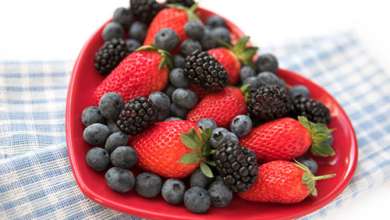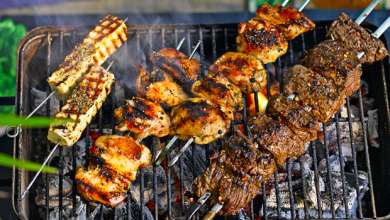Top 10 Freezing Tips

Take the guesswork out of freezing food with our guide. From freezer maintenance to labelling, these tips will save you time, money and effort in the kitchen. Whether you have a chest or upright freezer, the principles of successful freezing are the same.
1Cool foods before you freeze them. Freezing food when hot will only increase the temperature of the freezer and could cause other foods to start defrosting.
2Only refreeze food if you’re cooking it in between. When food is thawed bacteria can mulitply quickly, particularly at room temperature. If you pop it in the freezer, the bacteria survives and are more likely to reach harmful levels on second thawing. However, if you cook the food in between eg thawing beef mince, using it to make a bolognese and then refreezing, it’s not a problem as the bacteria will have been killed off in the cooking process.
3A full freezer is more economical to run as the cold air doesn’t need to circulate as much, so less power is needed. If you have lots of space free, half-fill plastic bottles with water and use them to fill gaps. Alternatively, fill the freezer with everyday items you’re bound to use, such as sliced bread or frozen peas.
4It’s a wrap. Make sure you wrap foods properly or put them in sealed containers, otherwise your food may get freezer-burn.
5Portion control. Freeze food in realistically sized portions. You don’t want to have to defrost a stew big enough to feed eight when you’re only feeding a family of three.
6If in doubt, throw it out. Contrary to what many people think, freezing doesn’t kill bacteria. If you are unsure of how long something has been frozen or are a bit wary of something once defrosted, don’t take any chances.
7Stay fresh. You get out what you put in as freezing certainly won’t improve the quality of your food. Don’t freeze old food because you don’t want to waste it; the point of freezing is to keep food at its prime.
8Friendly labels. It may seem a bother at the time, but unless you label you might not remember what it is, let alone when it was frozen. Buy a blue marker for raw foods and a red marker for cooked foods. You don’t have to write an essay, just label the food clearly. You can use big-lettered abbreviations, for example a big red P means cooked pork or a blue F means raw fish. And always add the date it was frozen.

9Defrosting is a must. An icy freezer is an inefficient one, so make sure you defrost your freezer if ice builds up. Don’t worry about the food; most things will remain frozen in the fridge for a couple of hours while the freezer defrosts.
10In an emergency… If there has been a power cut or you think the freezer has been turned off at some point, don’t open the door. Foods should remain frozen in the freezer for about 24 hours, leaving you time to get to the bottom of the problem.
What not to Freeze . . .
Most individual ingredients can be frozen, and all our recipes are helpfully labelled with freezing instructions. However, some foods simply aren’t freezer friendly:
- Raw eggs in the shells will expand and crack.
- Hard-boiled eggs go rubbery.
- Vegetables with a high water content, such as lettuce, cucumber, bean sprouts and radishes, go limp and mushy.
- Soft herbs, like parsley, basil and chives are fine for incorporating in dishes but won’t be good for garnishes.
- Egg-based sauces, such as mayonnaise, will separate and curdle.
- Plain yogurt, low-fat cream cheese, single cream and cottage cheese go watery.
Great to Freeze . . .
All these everyday ingredients will freeze well.
- Butter and margarine can be frozen for 3 months.
- Grated cheese can be frozen for up to 4 months and can be used straight from the freezer.
- Most bread, except crusty varieties such as French bread, will freeze well for up to 3 months. Sliced bread can be toasted from frozen.
- Milk will freeze for 1 month. Defrost in the fridge and shake well before using.
- Raw pastry will freeze for for 6 months and takes just 1 hour to thaw.
Tips courtesy of BBC Good Food





